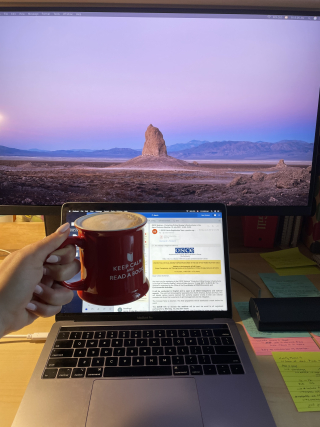My name is Chlöe Shahinian and I am a Master’s student in Political Science specializing in the sub-field of international relations as well as a recipient of this year’s Susan Casey Brown Fund for McGill, McGill International Experience Awards. I would like to sincerely thank Mr. Brown and the MIEA founders for the support which made the internship that I undertook this summer a possibility. I am certain that the experiences and skills which I gained in my internship will stay with me as I continue my academic studies and eventually pursue a career in the legal field.
This summer I was privileged to be offered the position of Policy Intern at the Delegation of Canada to the Organization for Security and Cooperation in Europe (OSCE), which is the largest regional security organization in the world under Chapter VIII of the United Nations Charter. As you can imagine, for a student specializing in international relations with an interest in pursuing a career in international law, this is nothing short of a dream come true. In pursuing this internship, my hope was to acquire a deeper understanding of inter-state interactions within a multilateral framework and experience first-hand the inner workings of a diplomatic mission.

Given that I also undertook this internship for academic credit, I look forward to working on my internship-affiliated research project in the Fall, with Political Science department’s Professor Fernando Nuñez-Mietz. The work which I did on the question of gender language for the delegation intersects interestingly with the research project I hope to undertake that will look at LGBTQ+ rights compliance in Eastern Europe.
While a virtual internship brought new and unprecedented challenges, including navigating a six-hour time difference with the delegation in Vienna, I am proud of all that I accomplished throughout the internship and the fact that I surpassed the expectations that I had for myself. My exposure to the work of the OSCE, specifically in terms of human rights promotion and supporting law-based solutions to ongoing issues such as violence against women and trafficking in human beings, reinforced my own interest in studying international law. Furthermore, working on a long-term project for the delegation shed light on the intricacies of the delegation’s approach to preparing for diplomatic negotiations.
